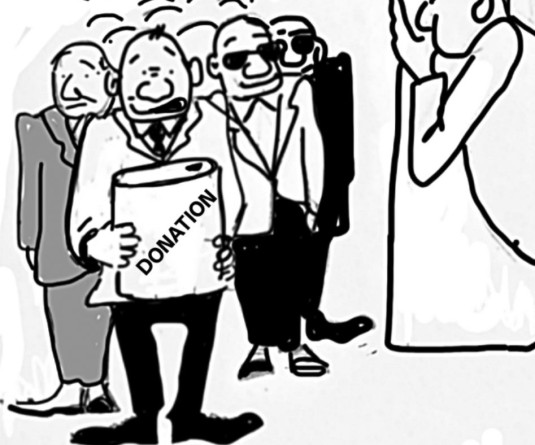
DIMAPUR, OCTOBER 17 (MExN): The Joint Coordination Committee (JCC) on IAS Induction, comprising CANSSEA, FONSESA, NIDA, NSSA, and NF&ASA, has issued a response to the government spokesperson’s remarks on the ongoing IAS induction controversy, terming it “a case of procedural manipulation” rather than bureaucratic misadventure.
In its statement, the JCC said that while the bureaucracy has often been blamed for administrative lapses, in this case “the prestige and respect of the IAS stands threatened by procedural manipulation to induct an irregular appointee into IAS to be equated with the rest.”
Quoting the government spokesperson, the JCC noted: “The error has occurred because the circular was neither placed before the Chief Minister who oversees the P&AR Department, nor approved by the Cabinet prior to issue.” It, however, pointed out that “the same order with the same content was issued by the same authority on 6th July 2020 approved by the Chief Minister and from which a candidate was selected and inducted into the IAS, governed by the same clause.”
The committee maintained that if the bureaucracy had indeed erred, “it is expected of the concerned authorities who has a moral and legal duty to ensure that the lapse of procedure is addressed rather than removing the circular.” It added that “a disease when detected in a patient, it is incumbent to treat and fix the disease and not exterminate the patient.”
Stating that Clause 4 of the circular does not violate the principle of meritocracy, the JCC said the issue could have been resolved by ratifying the lapse if the procedure so demanded.
The JCC also condemned what it termed an “unfortunate mis-statement” by the government spokesperson regarding the names of officers inducted into the IAS from the Non-State Civil Service (Non-SCS) quota in the past. It said the list was “biased and incomplete, factually incorrect and defames NPSC qualified IAS categorized as non-NPSC,” and added that “such a statement betrays trust and confidence.”
The JCC argued that precedents of the past—when there was no competitive examination or statutory recruiting institutions like the NPSC or NSSB—should not be used to justify current irregularities. “Precedence should be given importance if only it is rooted in fairness, justice and in public interest,” it said.
Referring to the 6th July 2020 vacancy circular, the JCC stated that it had made NPSC recruitment a necessary eligibility for IAS induction. A candidate was selected under this circular, and there were no objections from any quarter. However, when the same circular with identical eligibility criteria was reissued on March 10, 2025, it was withdrawn “to enable it to accommodate an applicant whose appointment and entry into service is irregular, thus violative of Article 16 of the Constitution,” the JCC said.
The committee added that it had submitted several representations to the government since March 2025, after the withdrawal of the circular, but “despite several representations, there was no invitation for discourse and the JCC was compelled to protest.”
It cited the government spokesperson’s statement—“that order (10th March 2025 Vacancy Circular) did not bar those officers who did not enter through NPSC; that it would have been fine. It detected that (Clause) no 4 has barred those officers whose entry was not from NPSC from participating, then that order was recalled/cancelled”—as proof of “favoritism, nepotism and premeditated preference of a particular candidate in spite of availability of other meritorious applicants.”
The JCC further said that if the circular had been withdrawn because all candidates were NPSC entrants, the argument of procedural correction could have been justified. “But the fact that there is a Non-NPSC candidate who also qualifies a backdoor credential makes the withdrawal of the circular a malafide act with vested interest on the pretext of procedural corrections,” it stated.
While acknowledging that the Cabinet has discretionary powers in policy matters, the JCC said it also bears responsibility “to ensure the best interest of the people and the government through fairness and merit.” It said the JCC hopes the government, through the Sub-Committee, “shall demonstrate its wisdom,” adding that “it remains to be seen whether its interest and priorities lie in the welfare of the State and the larger interest of the people through meritocracy or of favoritism and nepotism.”
It demanded the restoration of Clause 4 of the Vacancy Circular dated March 10, 2025, and the withdrawal of Non-NPSC appointees from the panel list forwarded to the UPSC.





